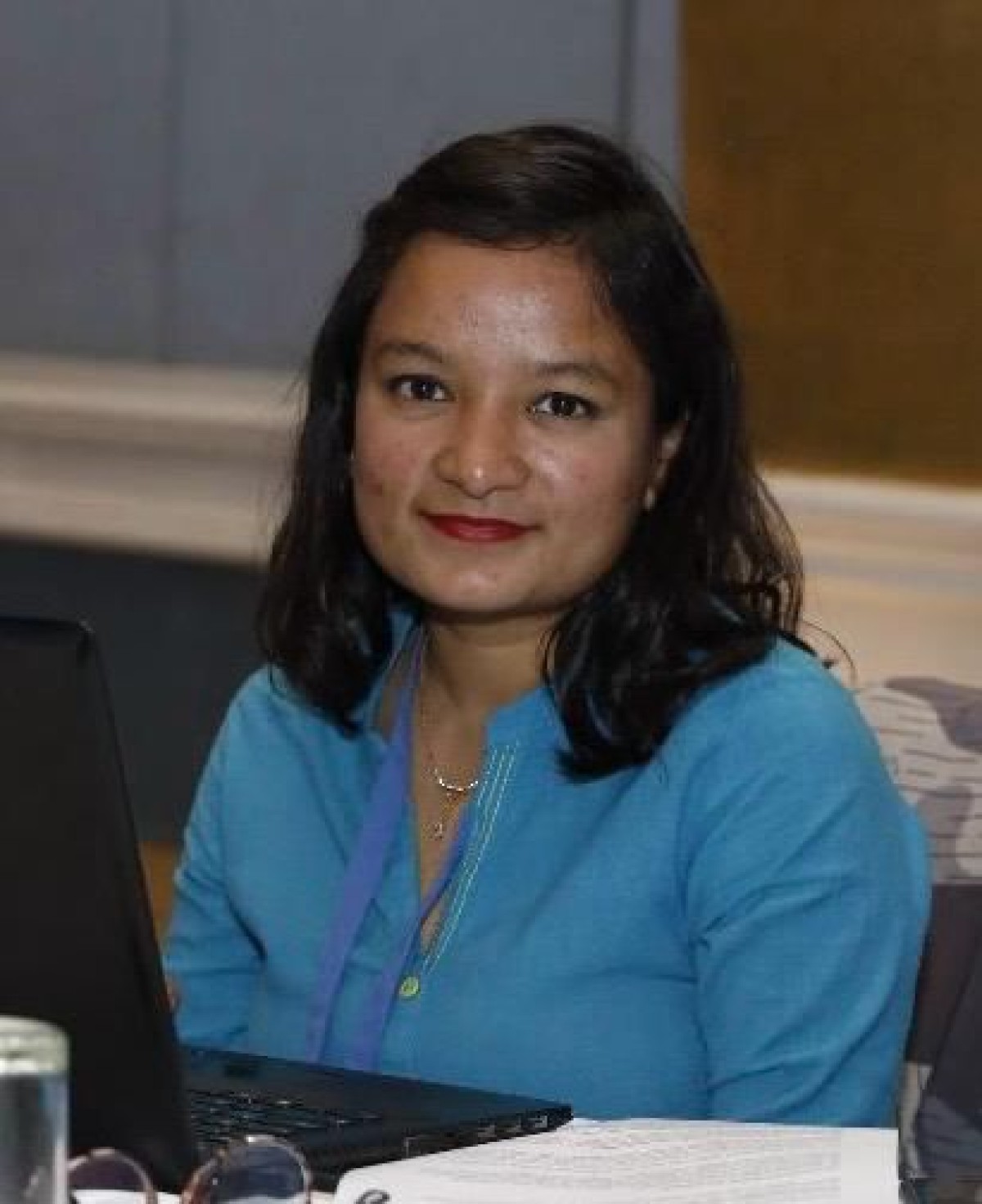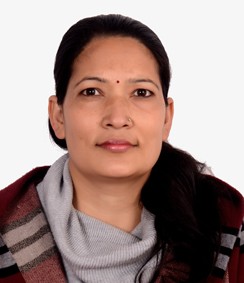Our Team
Board of Directors
Sirjana Kafle
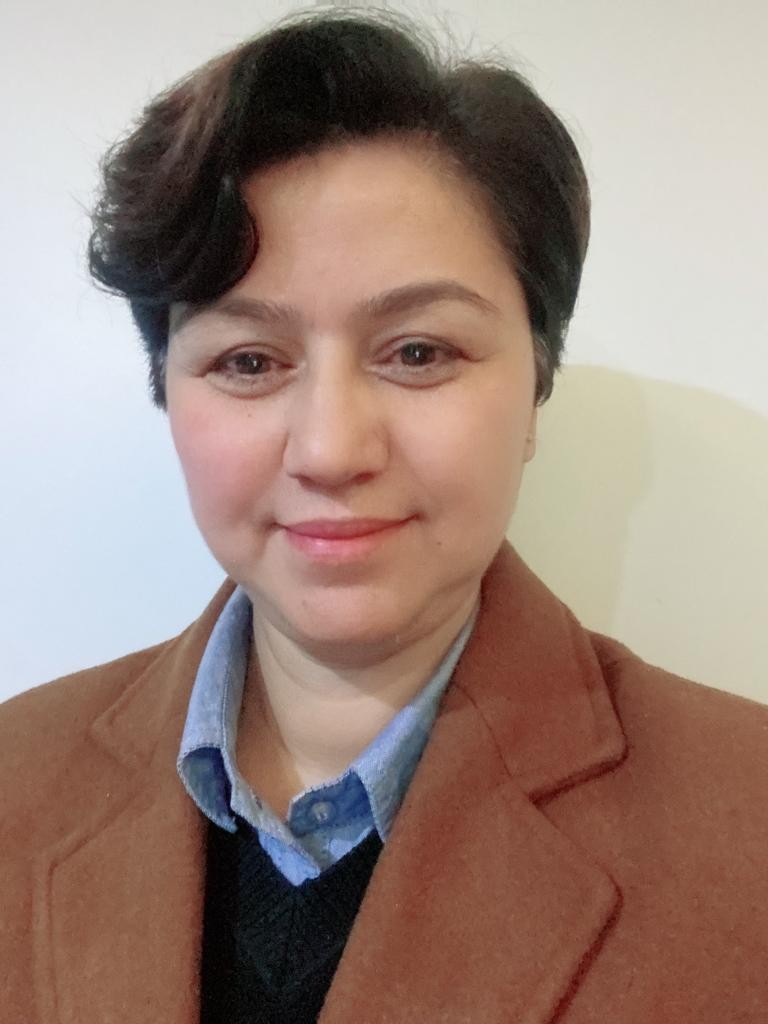
Sirjana Kafle is a social activist with over 20 years of experience in human trafficking, labor rights, and political and social inclusion of women and marginalized populations in Nepal. She is the Chief Executive Officer (CEO) of Purple Foundation, a feminist organization that works against modern slavery in Nepal. The organization aims to create a slavery-free society where every citizen can live with equal rights and full dignity.
As CEO, Sirjana is responsible for overseeing the overall organization's leadership, networking, advocacy, and strategic planning and implementation. She is a skilled trainer and facilitator, with expertise in advocacy, lobbying, and networking at national and international levels. In addition to her role at Purple Foundation, Sirjana has held various short-term consultancies, including conducting a baseline study for the project on addressing the impacts of COVID on efforts to combat transnational trafficking in persons (TIP) in two border districts of Nepal. She has also worked as a national consultant to conduct studies for the Situation Analysis of Chaupadi in the Far Western region conducted by the Ministry of Women, Children and Senior Citizens, Nepal, and conducted an assessment on the “Local Government Delivery System” in Sindhupalchowk District.
Sirjana has also served as a Technical Advisor for enhancing technical education in secondary schools in Nepal for Shinshu University, Japan/JICA/AST Foundation. She has worked as a Research Fellow at Nagasaki University, Japan, and as a Regional Manager at Sandy, LLC, a company dealing with immigrants; legal procedures in Japan. Additionally, she has worked as a Research Officer for Samjhauta Nepal/Pact International based in the USA and as a Project Coordinator for the Women Rehabilitation Center, The Asia Foundation/USAID.
Sirjana has extensive experience working on planning, monitoring, liaising, and coordinating among various partners, implementing and monitoring projects, and preparing reports. She has also conducted research on critical issues such as the entertainment sector, particularly women
and girls.
Nani Maya Thapa

Nani Maya Thapa is a Nepali sociologist and activist who has dedicated her career to social research, gender equality, and advocacy for marginalized communities. Nani Maya holds a Master's degree in Sociology and Anthropology from Tribhuvan University, Nepal, and is currently pursuing her MPhil in Sociology as a PhD scholar.
With a strong academic background and a passion for social justice, Nani Maya has been actively involved in various research projects and organizations. She has worked as a Senior Researcher for the Purple Foundation, where she focused on gender violence against women and sexual minorities in politics in Nepal and research on entertainment sector . Additionally, she served as a National Researcher for a project analyzing the impact of the Covid-19 pandemic on human trafficking in Nepal, conducted by the University of Nottingham and Teree des hommes.
Nani Maya has held significant leadership roles throughout her career. She served as the Executive Director of Gramin Mahila Srijanshil Pariwar (GMSP), an organization focused on Education, Health, Livelihood Emergency situation ,WASH and DRR including Anti human trafficking approach and Integrated community development approach for Community development. Her expertise in program management and community support led her to work as a Program Manager for Developing Democracy in Nepal, where she facilitated people's participation in the constitution-making process. She has also been involved with Government of Nepal like the Chairperson of NPEDC and Council member of SocialWelfare Council and has been a board member of various civil society organizations. Now She is a Central committee treasurer of NGO federation of Nepal.
In addition to her professional engagements, Nani Maya has actively participated in training programs, seminars, and workshops on topics such as gender equality, social inclusion, leadership development, and child rights. She has also facilitated several training sessions on gender equality, social mobilization, and community development.
Nani Maya's dedication to her work extends beyond Nepal. She has participated in international conferences and seminars in countries like Bangladesh, Korea, the United States, Thailand, the Philippines, and Ethiopia, where she has shared her expertise and learned from the experiences of others.
As a respected member of various professional societies, including the Purple Foundation, APWLD, and AATWIN, Nani Maya has contributed significantly to the advancement of gender equality, human rights, and social justice in Nepal and beyond. Her commitment to empowering marginalized communities and advocating for their rights has made her a prominent figure in the field of sociology and activism.
Benu Maya Gurung
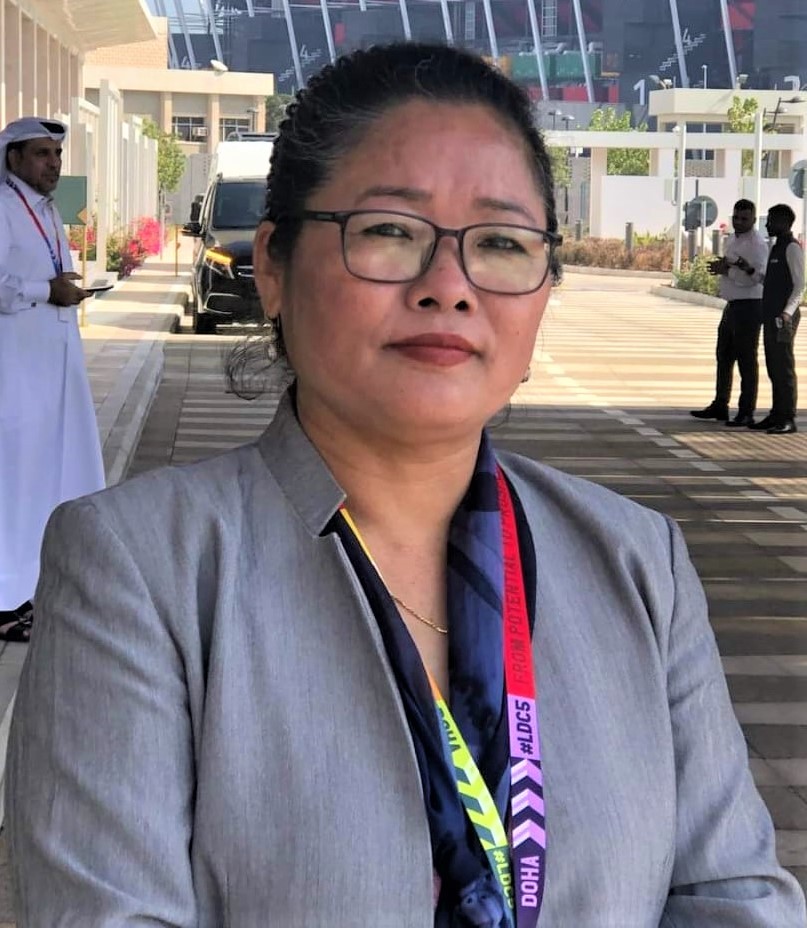
Benu Maya Gurung is the Executive Director at Alliance against trafficking of women and children in Nepal (AATWIN: A network of more than 30 organizations working against human trafficking). She has more than 15 years of working experience on Anti- Human Trafficking.
Jiwanti Aryal Poudel
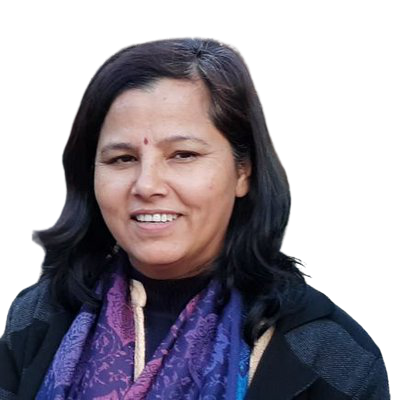
Jiwanti Poudel is a community engagement expert and a political activist. She has more than 20 years of experience working with the community, local, and national level policy development positions.
Neelam Sharma

Neelam has over 20 years of experience in human rights with specialized knowledge in marginalized women and children, and the rights of modern days slavery survivors. She is a senior manager, a feminist researcher, and an anti-slavery professional skilled in designing, managing anti-slavery programs, and managing multi-donor grants in multi-cultural settings. Neelam worked as a Country Representative in Nepal to pioneer anti-slavery organizations, Free the Salves (FTS)(2011-1017), and Anti-Slavery International (2018-2022). She also worked with UN agencies in Nepal (UNDP and UNMIN) during the conflict era.
She was a key team member in developing anti-trafficking training modules in Free the Slaves which are implemented across the program-implementing countries. She is also a key team member in developing the 'community maturity toolkit', an instrument measuring community resilience to slavery and trafficking in Nepal, India, and other FTS program countries. Neelam is a trainer/facilitator and had conducted several training, workshops, and seminars on leadership, anti-trafficking, capacity building, and gender and inclusion for community and political leaders, survivors, officials, and program-implementing partners in Nepal and India.
Staffs
Team of Experts
Binod Chapagain

Binod brings over 20 years of multi-sectoral international development experiences, which broadly include project development, implementation, research, monitoring, evaluation, and reporting. The experience includes 9 years of leading roles in reporting, monitoring, evaluation, and learning and 4 years in research. He performed the roles for the organizations which address issues associated with migration and trafficking/slavery; health and development in low- and middle-income countries; empowering women and people with different identities for their livelihoods; advocating human rights; ensuring access to people to finance in collaboration with governments, private sector businesses, investors and civil society; increase access to finance; and address greenhouse gas emission and climate change. He has managed programmes and teams; provided advisory services; played key roles in resources mobilization; and enhanced collaboration with governments and UN agencies. Over 20 years, he served in various capacities from grassroots to corporate levels with multi-country and multi-donor funded programs. He has worked for international humanitarian organizations on projects funded by donors, such as the Governments of the United Kingdom, Australia (DFAT), European Union (EU), Norway (NORAD), Switzerland (SDC), Sweden (SIDA), USAID and USG departments, and private foundations.
Charimaya Tamang

The story of Charimaya Tamang intensely represents the stories of thousands of trafficking victims in Nepal. She was born and raised in Sindhupalchwok district of Nepal. She became the victim of human trafficking when she was 16 years old. She was among those women and girls who were rescued by Indian police during the huge raid in the brothels of India. After getting rescued from the brothels, rescued women and girls were kept in the shelter home
in India. After spending 6 months in the shelter support in India, and among 500 survivors, she was one of the survivors who get repatriated to Nepal. With the aim of giving punishment to the trafficker and to raise the voice against human trafficking, she was the person who did not hesitate to call herself the survivors of the human trafficking and, she starts the campaign against the anti-human trafficking issues and raise the voices in the favor of trafficking survivors.
In the journey of anti-human trafficking campaign, she was honored by the Ministry of Women, Children and Social Welfare in the 2 nd National Day Against Human Trafficking in 2065 BS. In addition to this, she was awarded by the International Award "Hero Acting to End Modern Day Slavery Award" by the US Government in 2011 AD. She was privileged by the Nepal Government as a " Samaj Sewa Shree" Maanpadawi on the Republic Day in 2068 BS and again she was awarded by " Dayaram pariyar Award" in 2016 AD.
Charimaya Tamang is the first person who became the member of NCCHT (National Committee to Combat Human Trafficking) from the side of the survivors of the Human Trafficking. She was also invited in the “67th Session of the Commission on the Status of Women (CSW67)” organized by UN Women and Regional Workshop titled: “The Essential Role of Civil Society Organization in Trafficking in Person Responses” organized by UNODC ROMENA. With this respect and the honored, she always wants to dedicate her life in the movement of the anti-human trafficking.
Karen Snyder
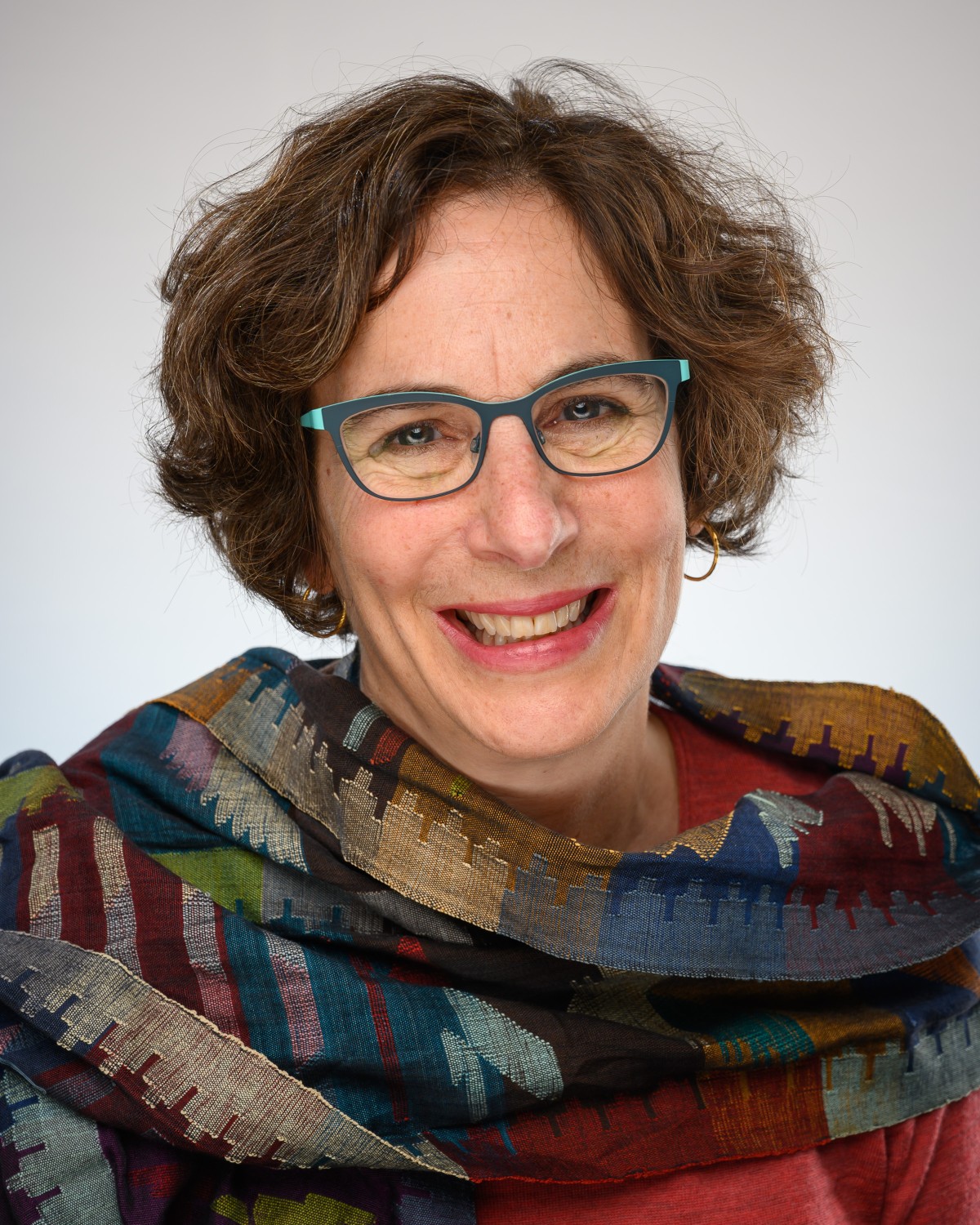
Karen Snyder is a doctoral-trained professional with more than 25 years’ experience improving policies and practices in anti-trafficking, human rights and the environment. Her expertise in strategic planning, evaluation, and translating evidence-based research has resulted in stronger organizations, innovative policies, and healthier communities. She was the Director of Monitoring, Learning and Evaluation at Free the Slaves and was co-investigator for Winrock/ USAID-funded anti-human trafficking research with workers and labour intermediaries in Nepal. She brings methodological research and evaluative expertise as an ally with a focus on participatory, equitable, and survivor-led approaches.
Mohan Singh Sunar
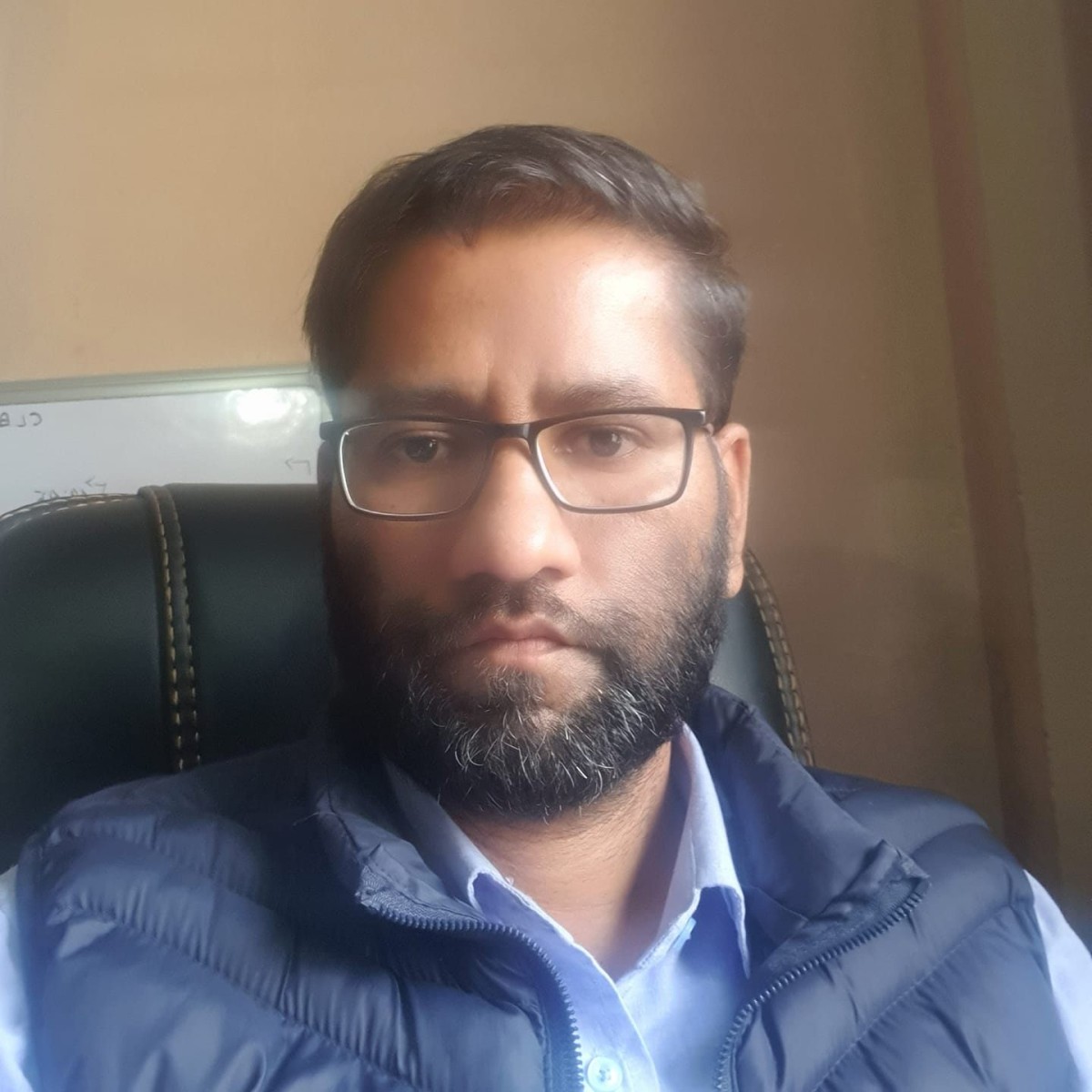
Mohan Singh Sunar is a senior development professional and independent scholar in social sector. He has over 18 years of extensive experience in nonprofit management, programme development, strategic planning, project cycle management, CSO coordination, teaching, research, evaluation and quality assurance. Currently, he works as a freelance researcher, evaluator, data analyst and trainer. He had worked with over 30 national and international organizations. He has two Master's degree in Economics and Public Administration, from Tribhuvan University, Nepal.
Rajneesh Kumar Yadav

Rajneesh Kumar Yadav over two decades has been committed to address and work on the issues related to modern form of slavery to dismantle the chain of bondedness for Sustained liberation of the communities trapped. His commitment is not just to the overall success of the program in reaching its goals but also in every interaction with individuals and groups in the remote and severely socially-excluded villages. He has worked with the organizations MSEMVS, Free The Slaves and Encompass LLC to lead team by example in terms of ensuring that every channel is pursued to assist families with members who have been trafficked or to ensure that a freed bonded laborer accesses every entitlement that will keep the individual in freedom. His work has been internationally recognized for its achievements and especially for the model it has created for whole communities removing themselves from slavery and from vulnerability to trafficking. Rajneesh’s experience encompasses legal methods to remove the impunity of traffickers; implementation of realistic livelihood interventions; training of local community groups to understand their rights and how to achieve them; the need to address gender-based violence and for women to take up leadership roles in communities; training of officials in their responsibilities and under; along with other civil societies.
Supriya Awasthi

Supriya’s career of more than 2 decades reveals a life that has been wholly dedicated to the eradication of slavery in Asia. The various movements and projects that she has participated and administered and implemented are now considered pioneer upon which much of today’s community-based anti-slavery work. Her work with various NGO’s in South Asia and Free The Slaves has focused on dismantling both archaic and modern systems of slavery.In order to perform both fieldwork and management duties one requires a balanced insight into the ground reality of slavery as well as the theory and strategies to enable enslaved communities and individuals to stand against systems of oppression.From campaign coordinator of a national child rights organization to South Asia director for an international anti-slavery movement.
Vithika Yadav

Vithika Yadav is an anti slavery, sexual rights and gender rights activist; and a social entrepreneur with over 20 years of experience. Her work ‘Standard Operating Procedures for rehabilitation work with victims of human trafficking, sexual violence and abuse’ was selected as a best practice model. Both nationally and internationally, Vithika is seen as an expert on survivor care and protection services and in this context she is focused on advising organisations on creating rights based programs of recovery through which women and girls can emerge from being victims to being human rights advocates in their own right.
